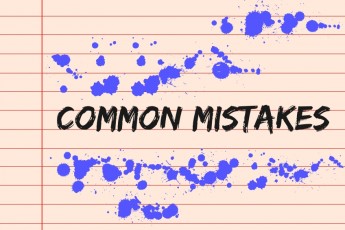Your Residency Personal Statement is your chance to shine. After all, you have an entire page to fill with your positive attributes and strengths. If you’ve started drafting this supporting document, you may be wondering just how personal it should be. The answer is…it depends.
Appropriate Personal Content for Your Residency Personal Statement
Relevant background/Childhood experiences
If your background story is relevant to your path toward medicine/residency, it’s a good idea to include it. For example, perhaps you grew up in a family of doctors and spent a lot of time in clinics/hospitals. Or, maybe you had a serious illness or injury and had a lot of exposure to doctors. Other relevant experiences could include:
- Growing up with little access to healthcare
- Spending time caring for a friend or family member who was seriously ill or injured
- Meeting a strong physician role model early in your life
Keep in mind that the Personal Statement is not a narrative-style document, so “story-telling” should be kept to a minimum.
Circumstances that caused a delay in your education
If there are personal circumstances that caused a break in your education, including them in your Personal Statement is smart. Taking care of a sick family member, the death of a loved one, or dealing with personal medical/mental health issues are all circumstances that are appropriate to discuss.
Circumstances that resulted in a USMLE Exam failure
If you have multiple attempts on a Step exam, and there are mitigating circumstances, you can certainly include them in the Personal Statement. Keep your explanation brief, 3-5 sentences, and then transition into a discussion about what you learned/how you have grown from the experience.
Content to Avoid in Your Residency Personal Statement
Stories About Ill/Injured Friends and Family
Unless you played a direct role in their care, sharing stories about other people’s illnesses or injuries isn’t smart. Your readers aren’t interested in what happened to someone else—even if it made an impression on you. Stick with actionable content that demonstrates your skills and strengths.
Information about your spouse/children
Your Personal Statement needs to focus on you. Spending time writing about your immediate family is not a good idea. Think about it: If your readers are learning about your spouse’s or children’s struggles or achievements, how does that help them understand why you’re a good fit for the program? The same goes for events like divorce. Unless there is specific relevance to your application, avoid writing about this kind of content.
There are, of course, exceptions to these suggestions! If you feel a story about a friend or family member is particularly relevant to your application for a specific specialty, it can be included.
We hope these tips are helpful as you’re drafting your Residency Personal Statement! If you need assistance, visit us at Residency Statement. Our expert editors and writers are committed to helping you craft the perfect Personal Statement. For more ideas and suggestions for your Residency Personal Statement, read our blog Creating a Well Crafted Medical Residency Personal Statement.









Leave a Comment